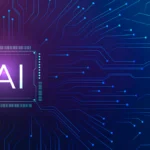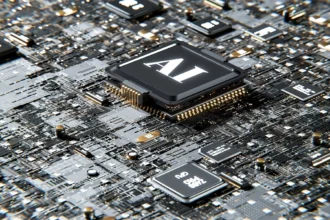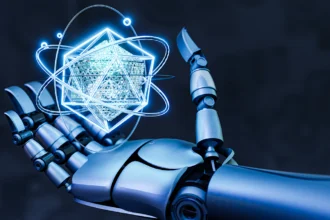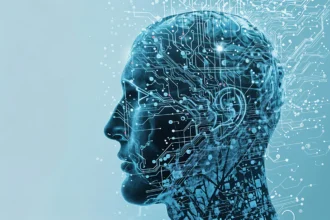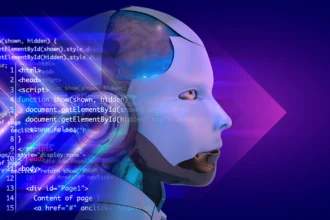Have you ever wondered how artificial intelligence (AI) impacts your daily life? From the moment you wake up to the time you go to bed, AI applications are seamlessly integrated into various aspects of your routine, making tasks easier, faster, and more efficient. In this article, we’ll explore ten real-world AI applications transforming everyday life. Discover how AI is reshaping industries, enhancing convenience, and improving quality of life. Ready to dive in? Let’s explore the fascinating world of everyday AI.
1. AI in Smart Homes
Imagine waking up to a home that anticipates your needs—lights turning on gradually, coffee brewing, and the thermostat adjusting to your preferred temperature. Smart home devices powered by AI, such as smart thermostats, security systems, and lighting controls, make this possible. These AI applications learn your habits and preferences, optimizing energy use and enhancing security. Brands like Nest and Amazon Alexa are leading the charge in creating intuitive, AI-driven home environments.
Benefits of AI in Smart Homes:
- Energy Efficiency: AI optimizes heating, cooling, and lighting based on usage patterns.
- Security: Intelligent security cameras and alarm systems detect unusual activities.
- Convenience: Voice-activated assistants like Alexa and Google Home streamline daily tasks.
2. AI in Healthcare
AI is revolutionizing healthcare by improving diagnostics, treatment plans, and patient care. From AI algorithms analyzing medical images to virtual health assistants providing 24/7 support, AI’s presence in healthcare is undeniable. For instance, IBM’s Watson can analyze large volumes of medical literature to assist doctors in diagnosing and treating patients.
Key AI Healthcare Applications:
- Medical Imaging: AI detects anomalies in X-rays and MRIs faster and with higher accuracy.
- Personalized Medicine: AI analyzes patient data to tailor treatments to individual needs.
- Virtual Health Assistants: Chatbots and AI applications provide medical advice and appointment scheduling.
3. AI Voice Assistants
Siri, Google Assistant, and Amazon Alexa are not just novelties—they’re practical AI voice assistants that enhance our daily lives. These AI applications help with tasks such as setting reminders, playing music, answering questions, and controlling smart home devices through simple voice commands.
How AI Voice Assistants Are Transforming Lives:
- Hands-Free Operation: Perform tasks without needing to physically interact with devices.
- Accessibility: Assist users with disabilities by providing voice-activated controls.
- Personalization: Learn user preferences to deliver customized responses and suggestions.
4. AI in Education
AI is making education more personalized and accessible. Educational platforms like Coursera and Duolingo use AI to adapt learning experiences to individual needs, ensuring students receive tailored support and resources.
AI’s Role in Modern Education:
- Adaptive Learning: AI systems adjust difficulty levels based on student performance.
- Virtual Tutors: Provide instant feedback and assistance outside traditional classroom hours.
- Data Analysis: Track student progress and predict outcomes to improve educational strategies.
5. AI in Transportation
From self-driving cars to intelligent traffic management systems, AI is transforming transportation. Companies like Tesla and Waymo are at the forefront of developing autonomous vehicles that promise safer and more efficient travel.
AI Applications in Transportation:
- Autonomous Vehicles: Self-driving cars use AI to navigate and make decisions in real-time.
- Traffic Management: AI algorithms optimize traffic flow and reduce congestion.
- Predictive Maintenance: AI monitors vehicle health to predict and prevent failures.
6. AI in Finance
The finance industry leverages AI for various applications, including fraud detection, credit scoring, and personalized financial advice. AI algorithms analyze vast amounts of data to identify patterns and anomalies that might indicate fraudulent activity.
Financial AI Innovations:
- Fraud Detection: AI identifies and mitigates fraudulent transactions.
- Robo-Advisors: Provide automated, personalized investment advice.
- Risk Management: AI evaluates financial risks to make informed decisions.
7. AI in Retail
Retailers are using AI to enhance the shopping experience, both online and in-store. AI-powered recommendation systems, like those used by Amazon, suggest products based on past purchases and browsing behavior.
Enhancing Retail with AI:
- Personalized Recommendations: Tailor product suggestions to individual preferences.
- Inventory Management: AI predicts demand to optimize stock levels and reduce waste.
- Customer Service: Chatbots provide immediate assistance and resolve queries.
8. AI in Entertainment
AI is reshaping the entertainment industry by creating personalized content and enhancing user experiences. Streaming services like Netflix and Spotify use AI to recommend shows, movies, and music tailored to individual tastes.
AI in the Entertainment Industry:
- Content Recommendations: AI suggests movies and music based on user preferences.
- Game Development: AI creates realistic environments and characters in video games.
- Production: AI tools assist in scriptwriting, editing, and special effects.
9. AI in Customer Service
AI-powered chatbots and virtual assistants are revolutionizing customer service by providing instant, 24/7 support. Companies like Zendesk and Intercom utilize AI to handle routine inquiries, freeing human agents to tackle more complex issues.
Transforming Customer Service with AI:
- Immediate Responses: Chatbots provide quick answers to common questions.
- 24/7 Availability: Offer support outside of traditional business hours.
- Efficiency: AI handles multiple inquiries simultaneously, reducing wait times.
10. AI in Manufacturing
In manufacturing, AI applications improve efficiency, quality, and safety. AI-driven robots and machines perform tasks with precision and consistency, while predictive maintenance ensures equipment operates smoothly.
Manufacturing Advancements with AI:
- Robotic Automation: AI robots handle repetitive tasks with high accuracy.
- Quality Control: AI systems detect defects in products to maintain high standards.
- Predictive Maintenance: AI predicts equipment failures, preventing costly downtime.
READ MORE : Top AI Algorithms You Must Know
Conclusion
As we’ve explored, AI applications are deeply integrated into various facets of everyday life, from smart homes and healthcare to transportation and education. These innovations are not just futuristic concepts but real-world solutions enhancing our daily experiences.
We hope this article has provided valuable insights into how AI is transforming the world around us. Stay updated with the latest AI trends and applications by joining our community on social media, subscribing to our newsletters, and enabling push notifications. Thank you for reading, and we look forward to sharing more exciting developments with you.



